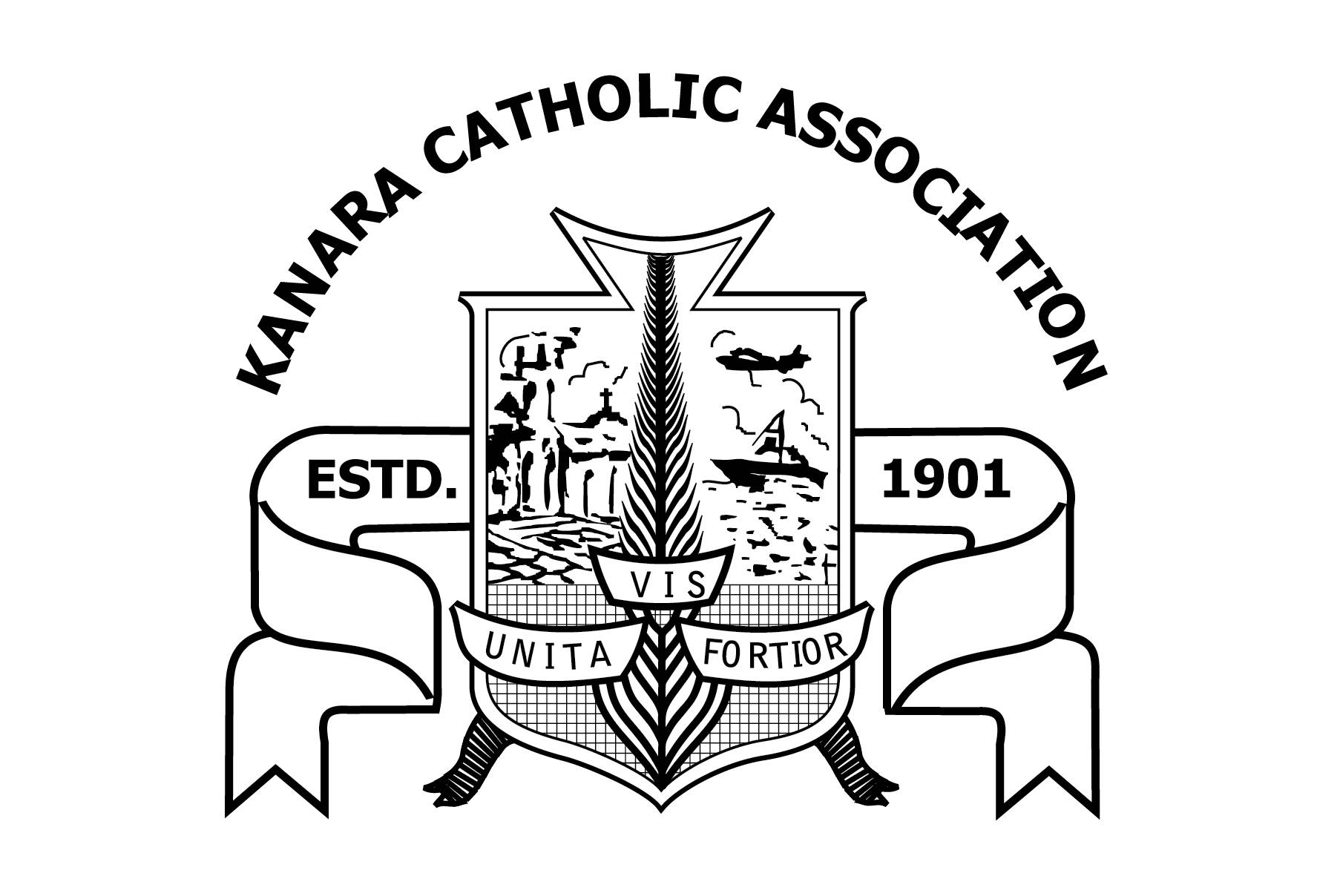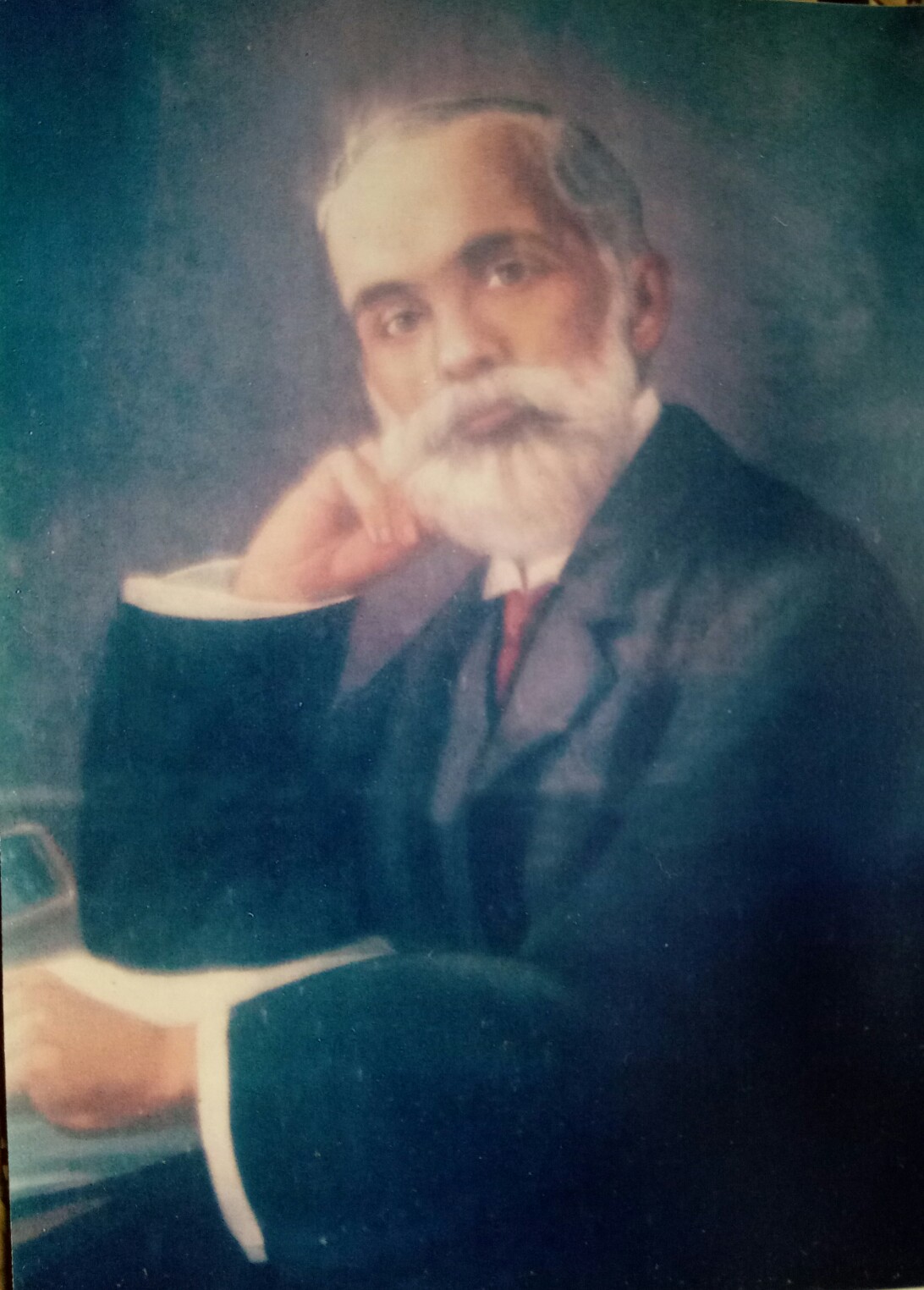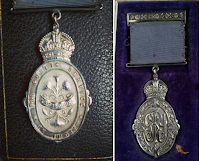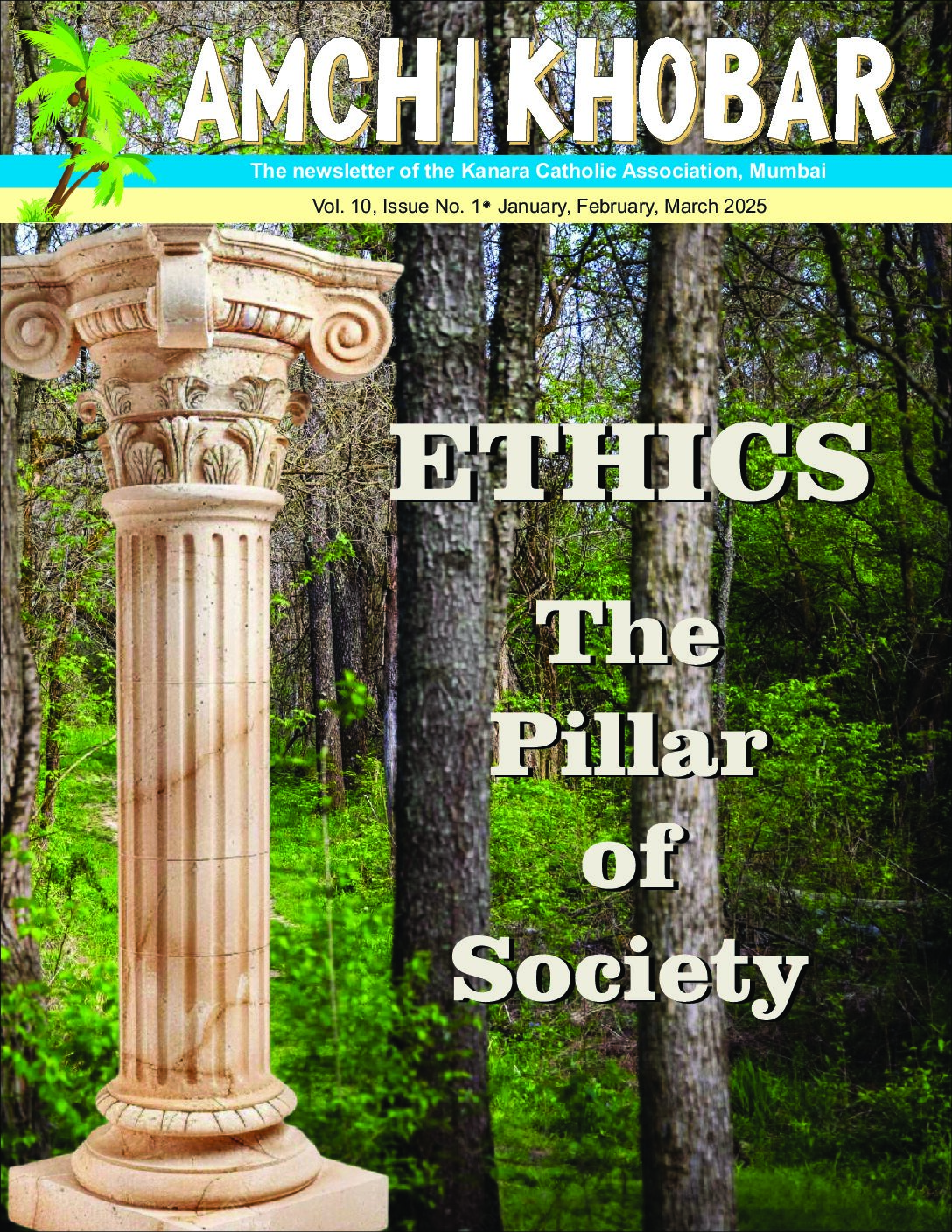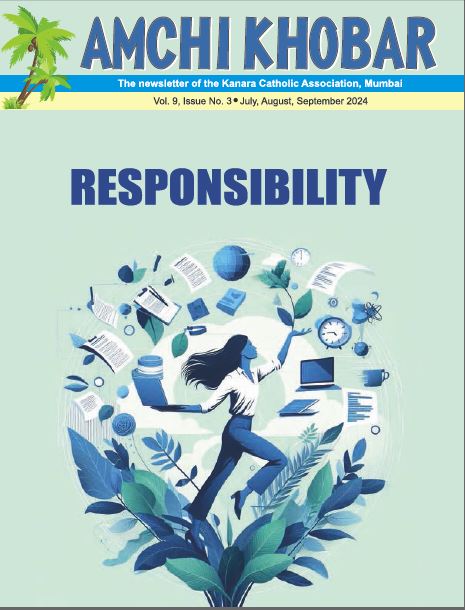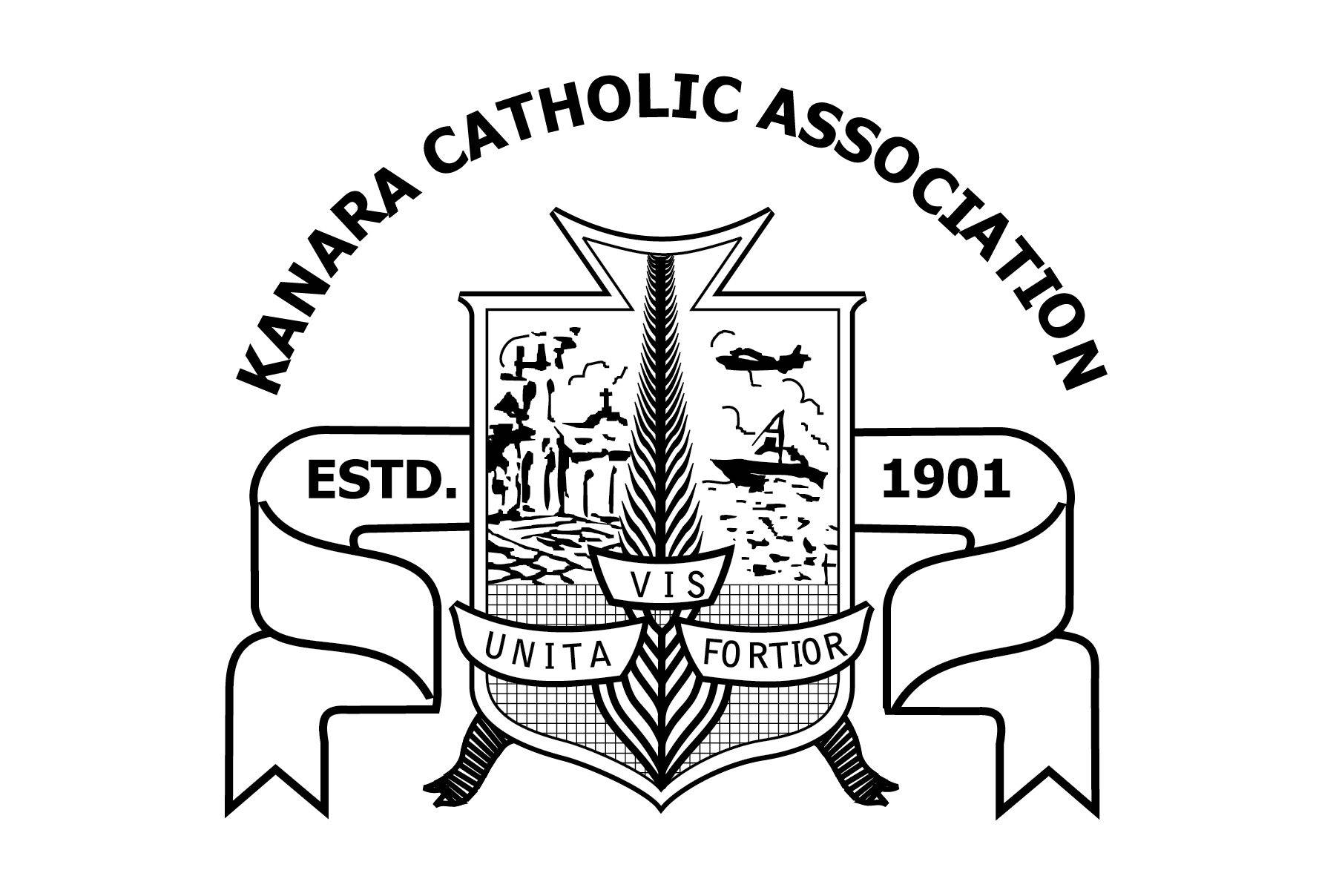The Father of Co-Operative Movements
A Catholic Visionary like no other in India
By Robin Saldanha
By Robin Saldanha
On the 6th of March, 1863, a son was born to the Thonse Rebellos of Kallianpur, Joanna (nee Monteiro) and Mattheus Rebello. He was christened Francis Anthony Cyril Rebello. He had his early education at the Government College at Mangalore, the only institution at the time. (St. Aloysius College commenced in 1880). He graduated from the University of Madras in 1883, BA with Honours, a gold medallist in Economics. Excelling in mathematics, he was recruited by the Office of the Accountant General, Madras Presidency. He worked there for a period of three years.
Knowing there were better prospects in Bombay, he joined the same Office in the Bombay Presidency in 1886. By sheer diligence, being a man of principle and character, he was promoted in quick succession, and rose to the post of Accountant General of Bombay. Mr. Rebello was also a Justice of Peace and an Honorary Magistrate. While in Office, he helped numerous Catholics with jobs. In fact, he recruited Mr. J. S. Pereira and Mr. Francis de Ga, both from Bandra, to the Accountants General Office.
It was during this period that he also took on the arduous task of educating with strict discipline his younger brother Peter’s 13 children! (Peter was the hereditary Patel and Honorary Magistrate of Kallianpur, and had to manage the vast Rebello properties there.
It was during this period that he also took on the arduous task of educating with strict discipline his younger brother Peter’s 13 children! (Peter was the hereditary Patel and Honorary Magistrate of Kallianpur, and had to manage the vast Rebello properties there.
At the age of 5 years, he sent his children to Bombay. All the ‘A’s excelled in their respective careers, 3 joining religious orders. Dr. A.C. Rebello, KCSG, MLC was a past President of the KCA. Mr. Cyril Rebello retired from the Accountants General Office in 1921.
No other Catholic in India has laboured so tirelessly to improve the religious, socio, and economic status of the community, and most importantly with NO vested interests. Mr. F.A.C. Rebello was a man simple in appearance with austere habits. In fact, he ate and slept very little, always on the move. His motto was “Laborare est Orare” (work is worship). His visionary mind was constantly active, brimming with ideas to organise help, protect and educate the Catholics.
He was truly a missionary who practised his religion, an unassuming man who never spoke of his achievements, and was embarrassed when others praised his work. Hence, there are no photographs of him with Governors, church hierarchy, or at civic receptions even though he was Chairman of the municipality of Bandra. He founded numerous Co-operative Societies which have flourished under his initiative, labour, organisational skills and expert advice; housing, credit, education, religious and agricultural societies in Bombay, Honawar, Dharwar, Belgaum, Poona, Nasik, Bassein, and Karachi.
Mr. Rebello was a regular if not the largest client, at the Chief Engineer’s Office in the Development Department. A firm believer that indigenous Catholics of the land should possess their own property and not be ousted by others, and also to safeguard their rights as well as to encourage other Catholics to buy property at concessional rates, led to him setting up the following Co-operative Societies:
The western side of Bombay had the majority of Catholic housing, so Mr. Rebello thought of having a colony for Catholics on the eastern side i.e. Chembur, and St. Anthony’s Society came about; a well-planned layout with a Church, a boys’ school, a girls’ convent, and a large playground. Mr. Rebello was Chairman of St. Anthony’s Homes from 1927-33, and President in 1934. The Bombay Catholic Co-operative Housing Society Ltd, Santa Cruz (the Willingdon Colony) is also part of history now – sadly, after much time and toil to provide affordable housing for the community in a verdant surrounding, it was sold to a non-Catholic builder recently.
Mr. Rebello was a regular if not the largest client, at the Chief Engineer’s Office in the Development Department. A firm believer that indigenous Catholics of the land should possess their own property and not be ousted by others, and also to safeguard their rights as well as to encourage other Catholics to buy property at concessional rates, led to him setting up the following Co-operative Societies:
- The Salsette Catholic Co-operative Housing Society Ltd in 1918 in Bandra.
- The St. Sebastian’s Home Co-operative Society Ltd in 1918 in Bandra.
- The Vile Parle Catholic Co-operative Housing Society Ltd (in liquidation).
- The Mangalorean Garden Homes Co-operative Society Ltd in 1916 in Bandra.
- The Nasik Catholic Sanatoria Co-operative Society Ltd in 1919.
- The Bombay Catholic Co-operative Housing Society Ltd in 1922 in Santa Cruz.
- The St. Anthony’s Homes Co-operative Society Ltd in 1925 in Chembur.
- The Dharwar Catholic Colony Co-operative Society Ltd.
Acres of land were bought at Andheri and Vile Parle, but due to various reasons (some by the Government who wanted the land for the railways) the plan was abandoned, some of the land was sold, some still remains. The MGHCS bought 3 plots on St. Leo’s Road, now history as the plots were sold by the current committee. To revive the society, Dr. A C Rebello gave his land, (now Rebello House) though he was getting numerous offers from non-Catholics. 20 lakhs! from a Sindhi in 1960.
The western side of Bombay had the majority of Catholic housing, so Mr. Rebello thought of having a colony for Catholics on the eastern side i.e. Chembur, and St. Anthony’s Society came about; a well-planned layout with a Church, a boys’ school, a girls’ convent, and a large playground. Mr. Rebello was Chairman of St. Anthony’s Homes from 1927-33, and President in 1934. The Bombay Catholic Co-operative Housing Society Ltd, Santa Cruz (the Willingdon Colony) is also part of history now – sadly, after much time and toil to provide affordable housing for the community in a verdant surrounding, it was sold to a non-Catholic builder recently.
The Nasik Catholic Sanatoria Co-Operative Society Ltd had 6 furnished cottages built as a memorial to Baptista, Domingo, Rebello, Simcox, Bethlehem, and Dr. Viegas (Scheme A). The cottages were for member families, and non-members, to enable them to have a holiday or recuperate, in a healthier climate than Bombay for nominal rates of Rs. 30 – 40 per month. Alas, this too has been sold due to the greed of men.
He also bought 16 acres, 8 guntas of land on behalf of the society in 1924 for Rs. 2,350/- in Deolali village (Scheme B). It was divided into 32 smaller plots and sold at affordable rates to Catholics to build their own homes. Numerous families benefitted from this scheme. As the Government of India Printing Press was established close by, and also the church and school, rates appreciated in the area. Mr. Rebello had grand ideas for Nasik; he wanted to build a Catholic township with schools, a Church, hospital, parks, etc., but sadly, his untimely demise prevented this. He acquired more land in October 1934, most of which was bought by the Bishop of Poona. A portrait of Mr. Cyril Rebello, was hung in Rebello Cottage, Nasik, after his demise.
Mr. Rebello was the first person in India to adopt the co-operative rules to education. He founded The Bombay East Indian Co-operative Educational Society Ltd in 1919, and The Mangalorean Catholic Co-operative Educational Society Ltd. Both societies were to help families of moderate means to educate their children.
He founded the Salsette Catholic Co-operative Agricultural Association Ltd. Large tracts of land were bought at Kondivita and Sahar to help rural communities start co-operative farming. Subsequently, the Government took over some of the lands for the Santa Cruz airport. He was to start one such Agricultural Co-Operative in Mangalore too, and all the bye-laws had been printed, the Registrar too, was aware of this plan but due to his sudden death, it was aborted.
He founded the following Credit Societies to help low income groups obtain loans at a lower rate of interest and rescue them from the clutches of money lenders.
- The Mangalorean Catholic Co-operative Credit Society Ltd in 1916, the first Catholic Co-operative Credit Society in India, which due to the selfless service of Mr. Rebello grew rapidly. At the Silver Jubilee celebrations in 1941 at the K. R. Cama Institute, an oil portrait of the late Mr. Cyril Rebello was unveiled. Mr. V. L. Mehta predicted it would be a bank soon. It is now Model Co-operative Bank Ltd.
- The Bombay Catholic Urban Co-operative Credit Society Ltd in 1920, now, Citizen Credit Co-operative Bank Ltd.
- The Salsette Catholic Co-operative Credit Society Ltd in 1920, of which he was President.
- The Karachi Catholic Co-operative Credit Society Ltd (in liquidation).
- The Karwar Catholic Co-operative Credit Society Ltd.
- The Poona Catholic Co-operative Credit Society Ltd (in liquidation).
- The Bassein Catholic Co-operative Credit Society Ltd in 1918, now, The Bassein Catholic Co-operative Bank Ltd.
In 1921, Mr. Rebello instituted the Bombay Catholic Welfare Organisation, of which he was Chairman and his good friend the Rt. Rev. Mgr. L. C. Pera, Vicar General of the Diocese of Damaun, was the President. He planned the working of this Organisation, and established several administrative committees within the structure. The B.C.W.O was a formidable organisation for the year it was founded, as the following committees were the precursors of what we have in the Diocese today.
- An educational committee to administer the working of the numerous schools in the Diocese. The committee also organised several inter-school sports meets in hockey, football, cricket, and athletics; inter-school competitions in arts, music, singing and elocution, and even started a motor training school for the migrants coming to the city in need of jobs.
- A Catholic Young Men’s Association; the Association looked after needs of the middle class and had 2 hostels for the youth of the city.
- A Women’s Guild for the welfare of young girls and unemployed women. The Guild imparted training in sewing, cooking, typing, etc., and had a women’s hostel.
- An Entertainment Committee to raise funds through fetes, socials, musical evenings, plays, etc., which brought in a lot of money during the years of its existence.
- A Missionary Society to collect money to help the Missions in India.
- An Employment Bureau to help the youth with appropriate jobs.
Mr. Rebello was also instrumental in introducing several religious orders to the city as Chairman of the B.C.W.O.
- In 1922, he suggested to Mgr. L. C. Pera to invite the Congregation of the Carmelite Religious, CCR to Bombay and housed them in a cottage in Willingdon Colony, Santa Cruz. He donated 2 acres of his land adjoining the colony to Mother M. Michael of St. Therese’s Convent.
- Mr. Rebello was a friend of Mgr. Louis Mathias, who was the first Father Provincial of the Salesians in Calcutta in 1926. He requested Mgr. Pera to ask the Salesians to come to Bombay, and take over the Catholic Education Institute at Tardeo, which was under the Educational Committee. The Salesians came to Bombay in 1927. Mr. Rebello identified a site at Matunga, and the Salesians shifted there in 1928.
- He again requested Mgr. Pera to invite the Capuchin Order to Bombay. He bought 7 acres of land on behalf of St. Anthony’s Society, Chembur, which was to house the Capuchins. Unfortunately, there were changes in the Diocese of Damaun and their jurisdiction. The Capuchins were not able to obtain permission from the new ecclesiastical authorities, and moved to Mangalore. The Bombay Presidency Golf Course is now on that same land.
As his nephews and nieces were now independent, he donated his home which was next to Mt. Mary’s Church, Bandra, in 1927 to the Franciscan Hospitallers of the Immaculate Conception, as well as the property in front. He stayed as a paying guest at the home of Mr. P. V. Domingo on St. Leo’s Road.
Mr. Rebello was a gentleman of much landed property, a 1500-acre coffee estate in the south, large tracts of lands in the suburbs, and a handsome pension. He could have lived a very comfortable retired life, but he devoted his life to ameliorate the status of his brethren. He would acquire the lands, plan, organise, with an indefatigable energy, and then move on to his next project. Once the societies were founded by him there would be a crazy scramble for positions of President, Chairman, Secretary, etc., amongst the members. In fact, if some of the societies went into liquidation, it was mainly due to the lack of co-operation and initiative amongst its members, as without his direction they were often lost, and he would often be called back for his expert advice.
Mr. Rebello was a gentleman of much landed property, a 1500-acre coffee estate in the south, large tracts of lands in the suburbs, and a handsome pension. He could have lived a very comfortable retired life, but he devoted his life to ameliorate the status of his brethren. He would acquire the lands, plan, organise, with an indefatigable energy, and then move on to his next project. Once the societies were founded by him there would be a crazy scramble for positions of President, Chairman, Secretary, etc., amongst the members. In fact, if some of the societies went into liquidation, it was mainly due to the lack of co-operation and initiative amongst its members, as without his direction they were often lost, and he would often be called back for his expert advice.
The British Crown honoured him with the silver Kaisar-I-Hind in 1933, and he was presented with the medal by the Viceroy of India, the Earl of Willingdon. Other notable recipients of this award were Mahatma Gandhi, and the Gaikwad of Baroda. Mr. F.A.C Rebello has left behind a formidable legacy for the Catholics and the Church, which is so inspiring and countless people are reaping the fruits of his selfless sacrifice. It is no wonder he is known as the “Father of the Co-Operative Movement for Catholics in Western India.”
Mr. Cyril Rebello died on the 20th November 1934, and was buried at St. Andrew’s Church, Bandra. “Mr. F.A.C Rebello was an outstanding figure among the Roman Catholics of India and a great social worker” The Times of India, 21st November 1934. Mr. Rebello lived his life, with true Christian values instilled in him by his devout parents. “Whatever you do, work heartily, as for the Lord and not for men, knowing that from the Lord you will receive the inheritance as your reward. You are serving the Lord Christ” Colossians 3:23-24
(Shockingly, Mr. Rebello’s permanent grave which was outside the Bosco Hall, was sold by the Church, to the Netto family, without informing the Rebellos; the marble tomb stone which was engraved with his achievements has also disappeared. His portrait, which used to be at the Bandra Gymkhana has since been removed.)
